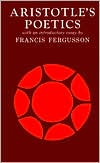Category Books
- Fiction Books & Literature
- Graphic Novels
- Horror
- Mystery & Crime
- Poetry
- Romance Books
- Science Fiction & Fantasy
- Thrillers
- Westerns
- Ages 0-2
- Ages 3-5
- Ages 6-8
- Ages 9-12
- Teens
- Children's Books
- African Americans
- Antiques & Collectibles
- Art, Architecture & Photography
- Bibles & Bible Studies
- Biography
- Business Books
- Christianity
- Computer Books & Technology Books
- Cookbooks, Food & Wine
- Crafts & Hobbies Books
- Education & Teaching
- Engineering
- Entertainment
- Foreign Languages
- Game Books
- Gay & Lesbian
- Health Books, Diet & Fitness Books
- History
- Home & Garden
- Humor Books
- Judaism & Judaica
- Law
- Medical Books
- New Age & Spirituality
- Nonfiction
- Parenting & Family
- Pets
- Philosophy
- Political Books & Current Events Books
- Psychology & Psychotherapy
- Reference
- Religion Books
- Science & Nature
- Self Improvement
- Sex & Relationships
- Social Sciences
- Sports & Adventure
- Study Guides & Test Prep
- Travel
- True Crime
- Weddings
- Women's Studies
Aristotles Poetics: Translation and Analysis »

Authors: Aristotle, S. H. Butcher (Translator), Francis Fergusson
ISBN-13: 9780809005277, ISBN-10: 0809005271
Format: Paperback
Publisher: Farrar, Straus and Giroux
Date Published: January 1961
Edition: (Non-applicable)
Author Biography: Aristotle
Other works by the renowned classical scholar, translator, and literary critic Francis Fergusson include The Idea of a Theater: A Study of Ten Plays, Sallies of the Mind: Essays, Trope and Allegory: Themes Common to Dante and Shakespeare, and Dante's Drama of the Mind: A Modern Reading of the Purgatorio.
Translator and scholar S. H. Butcher served as editor for the Dover Thift Edition of the Poetics, as well as for the Orationes, Volume 1 by Demosthenes. Butcher is also the author of Aristotle's Theory of Poetry and Fine Art.
Book Synopsis
Introduced by Francis Fergusson, the Poetics, written in the fourth century B.C., is still an essential study of the art of drama, indeed the most fundamental one we have. It has been used by both playwrights and theorists of many periods, and interpreted, in the course of its two thousand years of life, in various ways. The literature which has accumulated around it is, as Mr. Fergusson points out, "full of disputes so erudite that the nonspecialist can only look on in respectful silence." But the Poetics itself is still with us, in all its suggestiveness, for the modern reader to make use of in his turn and for his own purposes.
Francis Fergusson's lucid, informative, and entertaining Introduction will prove invaluable to anyone who wishes to understand and appreciate the Poetics. Using Sophocles' Oedipus Rex, as Aristotle did, to illustrate his analysis, Mr. Fergusson pints out that Aristotle did not lay down strict rules, as is often thought: "The Poetics," he says, "is much more like a cookbook than it is like a textbook of elementary engineering." Read in this way, it is an essential guide not only to Sophoclean tragedy, but to the work of so modern a playwright as Bertolt Brecht, who considered his own "epic drama" the first non-Aristotelian form.
Library Journal
This useful book, an extended study of the Poetics , treats such subjects as Aristotle's general aesthetic views; mimesis; pity, fear, and katharsis; recognition, reversal, and hamartia; tragic misfortune; the nontragic genres; and the historical influence of the work. Aristotle emerges as holding a deeply cognitivist view of poetry and as rejecting the attempt to judge art primarily by external (e.g., moral, political) criteria; his call for the relative autonomy of art, however, neither commits him to an aestheticist view nor prevents him from attributing to art a significant moral dimension. Halliwell's attempts to keep Plato in close view and to keep the Poetics within the context of Aristotle's philosophy as a whole are illuminating. For academic collections. Richard Hogan, Philosophy Dept., Southeastern Massachusetts Univ., N. Dartmouth
Table of Contents
| Introduction to 1998 edition | ||
| Abbreviations | ||
| I | The Setting of the Poetics | 1 |
| II | Aristotle's Aesthetics 1: Art and its Pleasure | 42 |
| III | Aristotle's Aesthetics 2: Craft, Nature and Unity in Art | 82 |
| IV | Mimesis | 109 |
| V | Action and Character | 138 |
| VI | Tragedy and the Emotions | 168 |
| VII | Fallibility & Misfortune: The Secularisation of the Tragic | 202 |
| VIII | The Chorus of Tragedy | 238 |
| IX | Epic, Comedy and Other Genres | 253 |
| X | Influence & Status: the Nachleben of the Poetics | 286 |
| App. 1 | The Date of the Poetics | 324 |
| App. 2 | The Poetics and Plato | 331 |
| App. 3 | Drama in the Theatre: Aristotle on Spectacle (opsis) | 337 |
| App. 4 | Aristotle on Language (lexis) | 344 |
| App. 5 | Interpretations of katharsis | 350 |
| Bibliography | 357 | |
| Index | 365 |
Subjects
 Literary Criticism
Literary Criticism  Drama - Literary Criticism
Drama - Literary CriticismFiction Books & Literature
 Literary Criticism
Literary Criticism  Literary Theory
Literary TheoryNonfiction
 Philosophy
Philosophy  Ancient & Medieval Philosophy
Ancient & Medieval PhilosophyNonfiction
 Philosophy
Philosophy  Major Branches of Philosophical Study
Major Branches of Philosophical StudyNonfiction
 All Nonfiction
All Nonfiction  Ancient & Medieval Philosophy
Ancient & Medieval PhilosophyPhilosophy
 Ancient & Medieval Philosophy
Ancient & Medieval Philosophy  Ancient Greek Philosophy
Ancient Greek PhilosophyPhilosophy
 Major Branches of Philosophical Study
Major Branches of Philosophical Study  Aesthetics & Philosophy of Art
Aesthetics & Philosophy of Art
